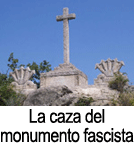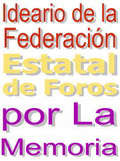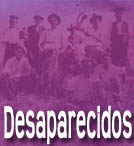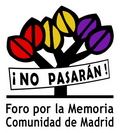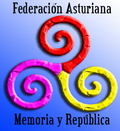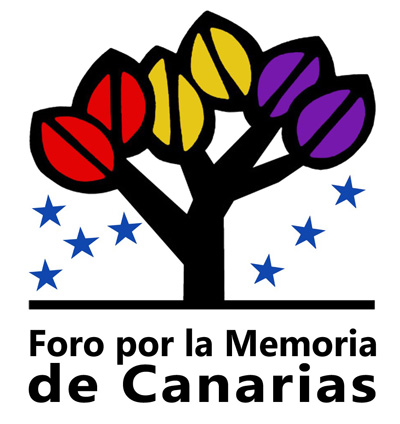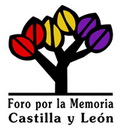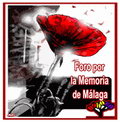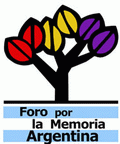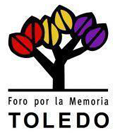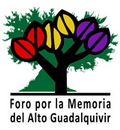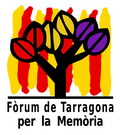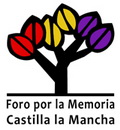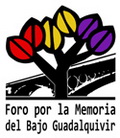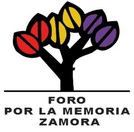«España se enfrenta a décadas de dolor por robos de niños»
 Spain Confronts Decades of Pain Over Lost Babies
Spain Confronts Decades of Pain Over Lost Babies
By RAPHAEL MINDER
SEVILLE, Spain — Prodded by grieving parents, Spanish judges are investigating hundreds of charges that infants were abducted and sold for adoption over a 40-year period. What may have begun as political retaliation for leftist families during the dictatorship of Gen. Francisco Franco appears to have mutated into a trafficking business in which doctors, nurses and even nuns colluded with criminal networks
The cases, which could eventually run into the thousands, are jolting a country still shaken by the spoken and unspoken terrors of Spain’s 1936-39 Civil War and Franco’s rule. Last week, 78-year-old Concepción Rodrigo Romero joined the rapidly growing ranks of Spanish parents who are turning to the courts to uncover the fates of their babies.
Mrs. Rodrigo Romero, a former seamstress, gave birth, prematurely, in 1971. A doctor in a Seville hospital told her that she had had a son, who was small but “fine and capable of getting a lot bigger,” she recalled in an interview.
The doctor never reappeared, and she never saw her baby again. Two days later, another doctor at the hospital told her husband that the baby had been sent to another hospital for further checks, but had died there.
The second hospital had taken care of the burial, the doctor said, and the body lay in Seville’s San Fernando cemetery, in an unmarked grave.
“Deep inside, I’ve always known that my son was stolen from me,” Mrs. Rodrigo Romero said.
Spain’s judiciary was forced into action after Anadir, an association formed to represent people searching for missing children or parents, filed its first complaints in late January. Attorney General Cándido Conde-Pumpido announced on June 18 that 849 cases were being examined, adding that 162 already could be classified as criminal proceedings because of evidence pointing to abductions.
The statute of limitations on most of the suspected crimes has expired, prompting lawyers to discuss whether a special statute can be adopted. In 2008, Baltasar Garzón, Spain’s most internationally renowned judge, extended an investigation into allegations of crimes during the Franco era to examine whether Franco had ordered thousands of babies taken from women who had supported his republican opponents in the civil war.
The cases of disappeared infants stretch from 1950 to 1990, continuing well after Franco’s death in 1975. It is not known whether government officials played any role.
Mr. Conde-Pumpido, who said it was impossible to estimate how many more cases would surface, also suggested for the first time that organized crime “networks” had been involved. He gave no details, saying only that he did not believe that “one single organization” had masterminded all the abductions.
Antonio Barroso, the president of Anadir, said he believed that over time Spain became a hub for gangs operating an international trade, with many newborns sold into adoption overseas.
The possibility of such an operation is one of many unanswered questions posed by the searing journey of long-silent parents and children in recent months.
Mr. Barroso, 42, founded Anadir last year, after being told by a friend that they were both adopted. He took DNA samples from the woman he had always known as his mother and confronted her after tests showed that his sample and hers were not a match. She admitted paying a nun for a baby and misleading her son about his birth for decades.
Mr. Barroso said he had since tracked down the nun, who had worked in a maternity ward. His own lawsuit — against the nun and other hospital staff members — has yet to be heard in court, and he is still searching for his real parents.
According to Anadir, a handful of adopted people have managed to find their parents, but so far most have preferred to remain anonymous. To help with legal matters, Anadir and other similar associations that have sprung up as the list of plaintiffs grows are trying to recruit lawyers willing to work on a pro bono basis.
Last month, the first cemetery exhumations took place in La Línea de la Concepción, after allegations that newborns had been buried there. Madrid’s regional attorney’s office has said that it would require medical staff members, including nuns who worked as nurses, to testify in court about the whereabouts of some children who were born during the 40-year period under investigation.
As in Mr. Barroso’s case, a few nuns have confessed to selling children, but without suggesting that they were part of a criminal network. The Roman Catholic Church has had no comment.
A Madrid company has built up a DNA data bank from about 700 people since January. Yet even with DNA testing, prosecutors face a struggle to search common graves for the remains of babies supposedly buried there. Medical records often prove to be incomplete or contradictory.
Flawed records are central to the complaint filed by Dolores Díaz Cerpa, who alleges that her newborn was abducted in 1973. Mrs. Díaz Cerpa had been told by a doctor that she was carrying twins. She gave birth to a daughter, but a nurse denied that she had carried another fetus.
Always suspecting a lie, and after hearing about other parents who were searching for stolen newborns, she asked the hospital for another copy of her daughter’s birth record. Instead, she received a record for a boy.
“The hospital suggested this was just an old administrative error, but nobody can convince me that I haven’t sadly been right for decades,” Mrs. Díaz Cerpa said.
Some couples, like Joaquín Sáez Naranjo and Manuela Sánchez Cintado of Seville, are pursuing multiple lawsuits. They lost two babies in suspicious circumstances, in 1972 and then in 1985.
In the 1985 case, Mrs. Sánchez Cintado said that doctors performed a sonogram, and that she was congratulated for carrying a boy. After giving birth, she was informed that the newborn had been sent to a special ward to deal with “a small problem.” Her husband was separately told that his baby daughter had died.
“I was going to have a boy and somebody switched him for a dead daughter,” a visibly shaken Mrs. Sánchez Cintado recalled. “This was as ridiculous a story as if the doctor had told me that I had broken my elbow and then started operating on my wrist.”
Like other parents, Mr. Sáez Naranjo said that he now deeply regretted having accepted a doctor’s advice that it would be best for him and his wife not to deal with the shock of seeing the dead baby’s body. Instead, he went to Seville’s San Fernando cemetery for the burial of “a bundle of cloth” in a common grave.
Last week, he was back at the cemetery, only to be told by staff members that the remains in that grave had been moved a decade ago to an unspecified location.
In separate interviews, some grieving parents said they allowed hospitals to handle the burials because their own insurance policies did not cover such costs. Others also said they were too naïve or uneducated to challenge medical workers, despite their suspicions.
During the Franco regime and in its immediate aftermath, “you simply didn’t challenge what an official told you,” said María Luisa Puro Rodríguez, a former tobacco factory worker who claims that her newborn was abducted in 1976 from a Malaga hospital. “We now thankfully live in a society where it is normal to question what we hear,” she said. “I’ve learned this bitter lesson and am now ready to fight all the way to find out what actually happened.”
http://www.nytimes.com/2011/07/07/world/europe/07iht-spain07.html?_r=1&ref=world








